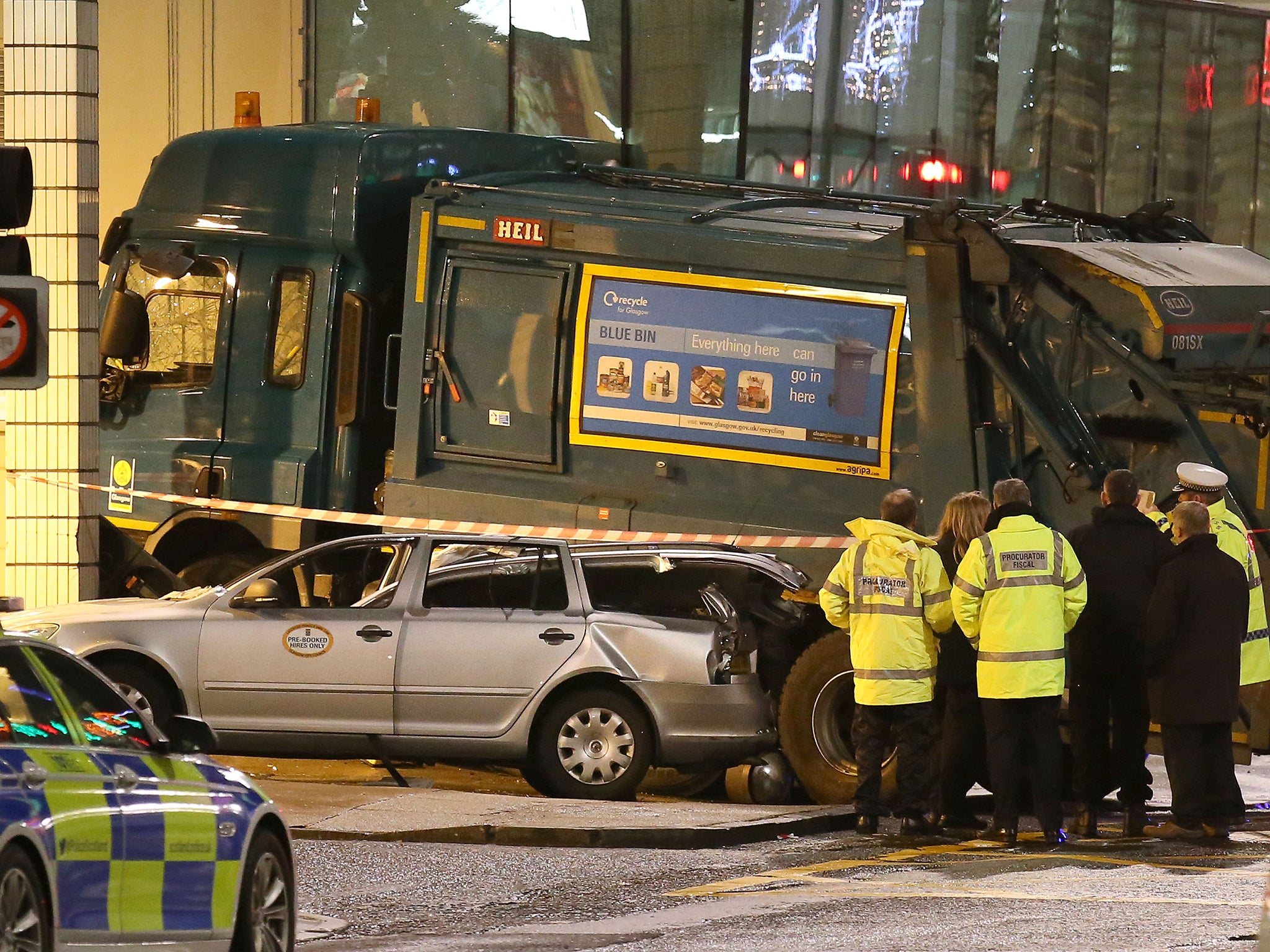Glasgow bin lorry crash: Victim's family seeks private prosecution against driver after case ruled out
Harry Clarke was behind the wheel of the vehicle that killed Jacqueline Morton

The family of a woman killed in the Glasgow bin lorry crash will seek to bring charges against the driver after prosecutors ruled out a case against him.
Lawyers acting for Jacqueline Morton, 51, have requested that an inquiry under way into the December 22 tragedy be halted as they attempt to bring a private prosecution against Harry Clarke, 58.
Mr Clarke was behind the wheel of the council refuse truck that veered out of control on a busy shopping street, killing Ms Morton, from Glasgow, and five others.
A fatal accident inquiry at Glasgow Sheriff Court has heard evidence that Mr Clarke had a history of dizzy spells and fainting which he failed to disclose to the DVLA and on job application forms.
Dorothy Bain QC, told Sheriff John Beckett she had been instructed to seek an adjournment of the inquiry in order to seek authority to bring a private prosecution.
Funding has still to be secured and it may take up to three months to establish whether they can proceed, she said.
A lawyer for the family of victim Gillian Ewing, 52, from Edinburgh, said they supported the motion for adjournment but relatives of 29-year-old Stephenie Tait, from Glasgow, said they would not be involved in any private prosecution.
Ronald Conway, solicitor for the Taits, said public interest would best be served by continuing with the inquiry, which is looking at Mr Clarke's medical history, the bin lorry and the route it took three days before Christmas.
He said: "Telling lies is not a crime; telling lies to the medical profession is not a crime."
Erin McQuade, 18, and her grandparents Jack Sweeney, 68, and Lorraine Sweeney, 69, from Dumbarton, also died in the tragedy.
Their lawyer, Mark Stewart QC, said they reserve the right to seek to prosecute anyone found to carry personal responsibility for the crash.
The Crown Office ordered an investigation into the circumstances of the accident after ruling that there was no evidence to warrant criminal proceedings.
The inquiry, now in its fifth week, will hear from the remaining witnesses before the sheriff makes a decision on Ms Bain's request on Thursday.
Mr Clarke himself was expected to give evidence but this has been complicated by the prospect of a private prosecution.
His lawyer said he "wants to answer all the questions that are put to him at the inquiry" but added that his client was entitled to "privilege against self-incrimination".
Solicitor General Lesley Thomson QC, who is leading the inquiry, said that a private prosecution was a "rare and exceptional beast", and the development would need to be considered by the Crown.
The DVLA last week ruled out taking any action against Mr Clarke, who was a driver with First Bus before taking up a job with Glasgow City Council in 2011.
The inquiry has heard evidence that he blacked out at the wheel of a stationary bus in Glasgow in April 2010.
Doctors diagnosed Mr Clarke with vaso vagal syndrome, a condition that affects the heart rate and blood pressure.
Witnesses on the day of December's crash reported seeing the lorry driver slumped at the wheel as the vehicle mounted the pavement on Queen Street and careered up the road towards George Square where it crashed into the Millennium Hotel.
Press Association
